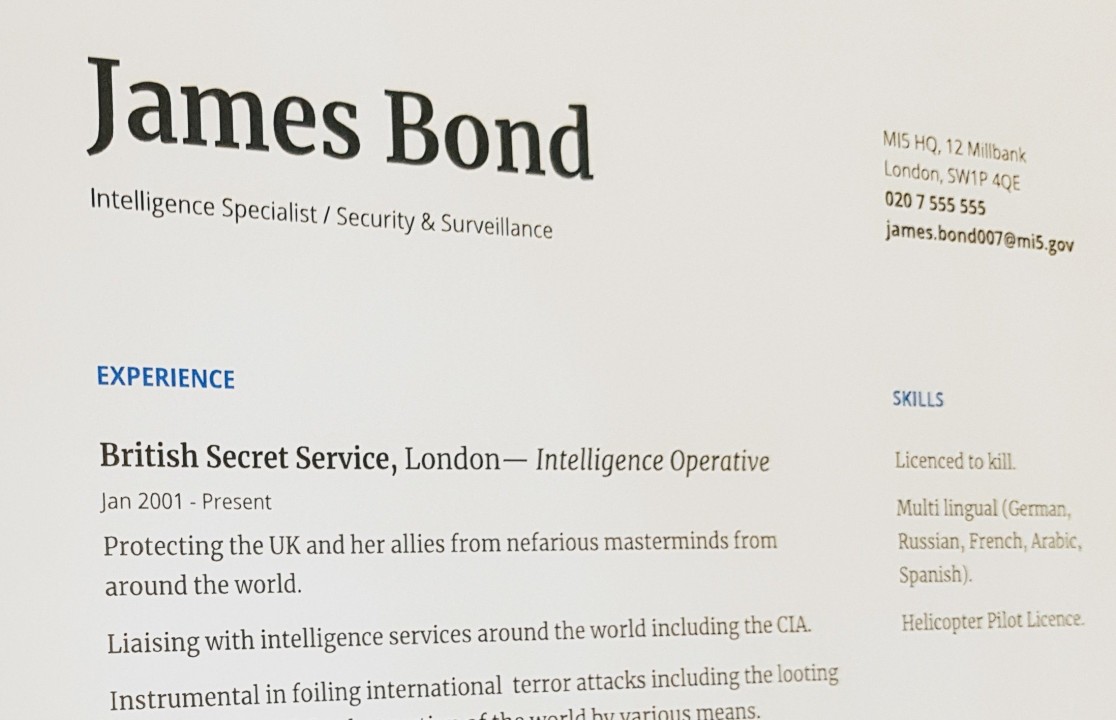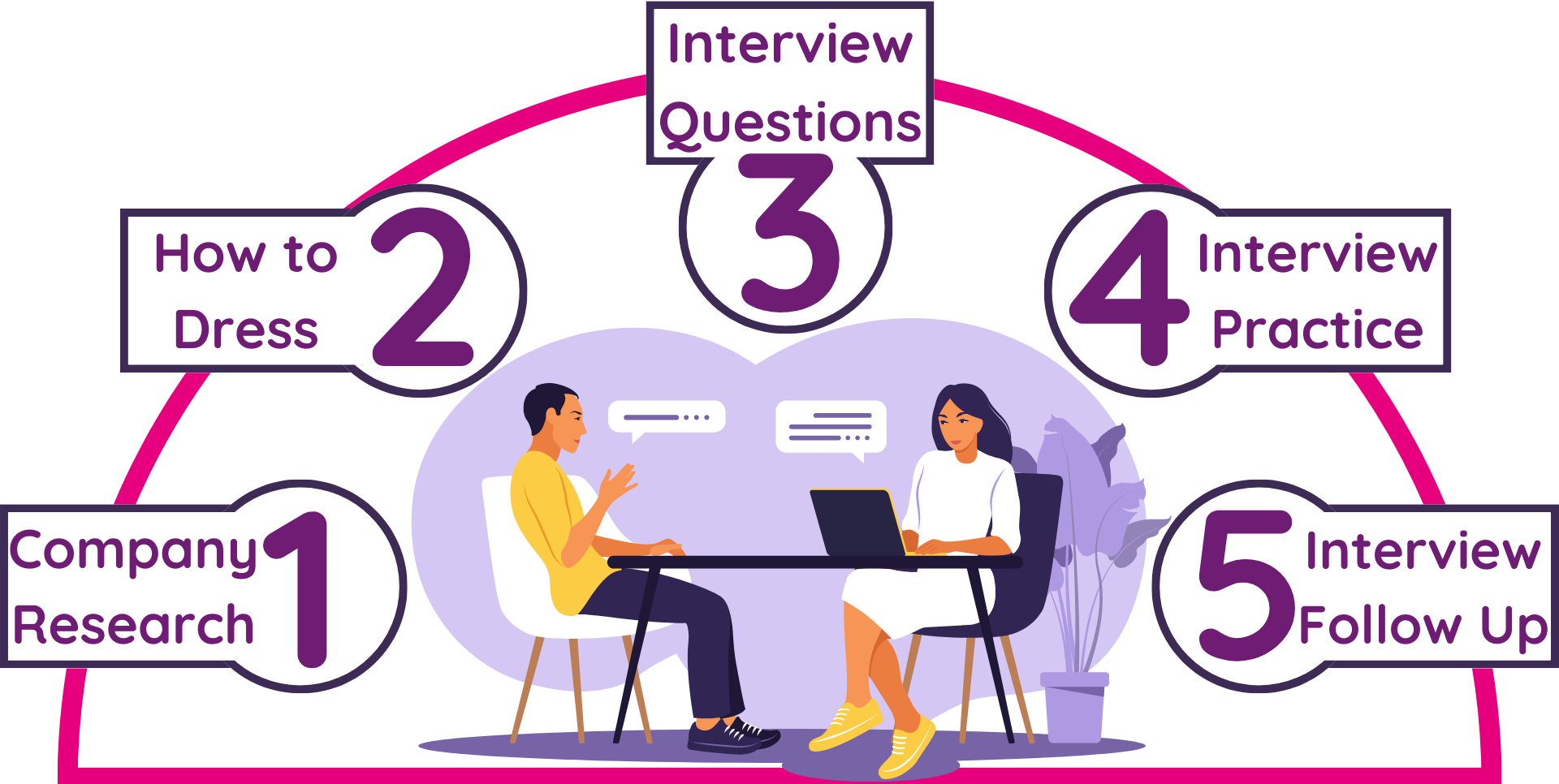The secret sauce for a successful experience lies in preparation, and it’s more than just memorizing answers. Getting to know the company you’re applying to can make a huge difference.
When you research key areas, you’ll not only feel more prepared but also gain insights that can help tailor your responses.
Practicing common interview techniques through mock interviews can boost your confidence. It’s all about creating a comfortable atmosphere where you can shine like the star you are! Now that you’re set to face the interview, remember to leverage your resume writing skills, employ effective interview techniques, practice through mock interviews, and apply the insights gained from career coaching to leave a lasting impression.
Resume Writing Tips For Interviews
Crafting a resume that catches the eye is all about showcasing who you are and the value you bring to the table. It’s not merely a list of jobs; it acts as your personal branding tool.
Tailor your resume to fit each job you apply for.
Highlight those experiences that speak directly to the role, and don’t forget to weave in those important keywords from the job listing to make your application stand out.
Keep It Clean: Utilize bullet points and straightforward formatting to boost readability. This way, hiring managers can quickly identify your soft skills and achievements.
Your resume is your first opportunity to shine! Just as you prepare for a job interview confidently, remember that your resume sets the stage for success. Highlight the importance of personal branding, crafting an effective elevator pitch, honing soft skills, engaging in networking opportunities, and preparing for interview questions.
Mastering Interview Techniques For Success
Preparing for an interview goes beyond merely rehearsing answers; it involves really grasping what employers desire. A significant aspect is company research.
Take a deep dive into their values and mission.
This insight allows you to tailor your responses and resonate with their expectations.
Effective communication plays a big role.
Practice those common interview questions so you can express yourself naturally. Keep in mind, body language speaks volumes.
Maintain eye contact and use open gestures to radiate confidence—this type of non-verbal communication fosters trust right off the bat.
Asking questions is just as important! Insightful queries about team dynamics not only exhibit your interest but can also ignite meaningful conversations. Following the interview, sending a thank-you email helps reinforce your enthusiasm and makes you more memorable in a competitive job market, demonstrating your professionalism and attention to detail, which are crucial aspects of effective body language and strong performance in behavioral interviews, alongside thorough company research and industry knowledge.
The Importance Of Mock Interviews
Preparing for an interview can definitely get your nerves going, but practicing through simulated sessions can really help. These exercises are a great way to build confidence and ease those jitters.
As you practice your responses, you’re not only getting your answers down but also fine-tuning your communication skills along the way.
Engaging in a mock scenario gives you a chance to reflect on your strengths and pinpoint areas for improvement.
This practice is essential for making sure your responses align with your career goals.
Have you come across the STAR method? Implementing it during your preparation can structure your answers more effectively, making them more compelling.
Devoting time to these practice sessions allows you to present your best self when it counts. So, by focusing on confidence building and effective communication, setting clear career goals, and utilizing follow-up emails along with the STAR method, you can enhance your professional development.
Job Application Essentials To Impress
Here are some essentials that will help you stand out from the crowd.
Tailor Your Application:
- Customize your resume and cover letter just for each job. It’s all about highlighting your relevant skills and experience.
- Incorporate keywords from the job description; this shows you’re a perfect fit for what the employer needs. A few resume tips can enhance your chances significantly.
Research the Company:
- Dive into the company’s mission and values. This genuine interest can make a real difference during the application process.
- Stay updated on recent situational questions, resume tips, etiquette, job search strategies, and LinkedIn profile enhancements to improve your employability.
- Customizing your application can increase your chances of landing an interview by up to 50%.
- Employers spend an average of just 6 seconds reviewing a resume, making it crucial to highlight relevant skills quickly.
- Researching a company can enhance your interview performance, as candidates who demonstrate knowledge about the company are viewed more favorably.
- Using keywords from the job description can improve your resume’s chances of passing through Applicant Tracking Systems (ATS), which many employers use to screen applicants.
Building Your Personal Branding For Interviews
Crafting a unique self-presentation is key to making a standout impression during your next interview. It’s not merely about a polished resume; it’s about showcasing who you are and what you bring to the table in a way that resonates with others.
Defining Your Brand:
Identify your strengths and unique skills that make you stand out in your professional network. Think about the experiences you’ve had that have shaped you into the candidate you are today.
Reflect on how your past experiences shape your professional identity. What stories can you share that illustrate your journey and how it’s connected to your current aspirations, particularly in relation to building a professional network, refining your self-presentation, developing your portfolio, mastering time management, and engaging in roleplaying scenarios?.
Crafting The Perfect Elevator Pitch
When connecting with someone new, capturing their interest from the get-go can open up opportunities. Crafting a compelling introduction is key to showcasing your strengths and weaknesses.
Highlight your goals effectively to make a lasting impression.
Make your message stand out by honing in on your individual selling proposition, which not only distinguishes you but also resonates with current market trends.
Adding a personal anecdote can foster a genuine connection; it makes you more relatable and approachable.
Remember to engage in practice interviews with friends, as their insights can help you refine your approach, ensuring it aligns with the specific company culture you’re targeting.
Tailoring your delivery based on their feedback can enhance your overall effectiveness. Now, let’s shift gears and examine how company culture, strengths and weaknesses, practice interviews, market trends, and assessment centers all interplay in shaping successful career trajectories.
Career Development
- Effective introductions can increase networking opportunities by up to 50%.
- Research shows that tailoring your message to align with market trends improves engagement rates.
- Personal anecdotes in introductions can enhance relatability, making connections 30% more likely.
- Practice interviews can improve performance by 25%, as they provide valuable feedback on delivery and content.
Effective Body Language During Interviews
Imagine walking into an interview and immediately making a strong impression with just your presence. Your non-verbal cues can communicate volumes about your confidence and cultural fit.
It’s fascinating how first impressions are formed almost instantly, often within the first 30 seconds.
For instance, maintaining eye contact about 50-70% of the time can really boost your rapport with interviewers.
Then there’s posture; sitting up straight not only shows you’re engaged but also that you’re ready for the technical assessments ahead. If you find yourself fidgeting, try to keep those hands calm—exuding professionalism is key.
Why not practice with a friend to refine these valuable skills?
And speaking of preparation, consider recording yourself before that big moment. Watching your body language can yield surprising insights and highlight areas for improvement in negotiation skills, cultural fit, video interviews, technical assessments, and advancement opportunities.
Navigating Behavioral Interview Questions
Stepping into an interview can feel a bit like preparing for a performance. When it comes to these types of questions, it’s all about showcasing how you’ve tackled real-life situations.
Employers appreciate these inquiries; they shine a light on your problem-solving abilities and how you face various challenges.
Spotting common themes in these scenarios can be super helpful for your confidence exercises.
Look for trends like teamwork, conflict resolution, and leadership, as they frequently pop up.
Using the STAR Method can be your secret weapon in this skill evaluation process. Picture it as a simple recipe: describe the Situation, outline the Task, detail the Actions you took, and share the Results.
This structure allows you to weave a compelling narrative, making your responses memorable for the interviewer. Practicing out loud is a game changer, especially when combined with effective feedback mechanisms, diverse interview formats, thorough skill evaluation, targeted confidence exercises, and a well-structured preparation checklist.
Conclusion
As you reflect on your journey through the interview process, it becomes clear that each step plays a vital role in your overall success. Embracing self-assessment allows you to align your experiences with the questions that may come your way.
Every interview presents a unique opportunity to showcase your strengths and make a lasting impression.
Rehearsing your responses not only boosts your confidence but also sharpens your job readiness training skills, preparing you for unexpected moments.
The more you practice, the more adaptable you’ll become.
Following up after interviews is another important touchpoint; it reinforces your interest and leaves a memorable impact. Engaging in thorough prep work, including polishing your online presence, ensures every detail counts, from self-assessment to interview follow-up, job readiness training, and performance review.
Originally posted 2024-10-13 03:41:03.




